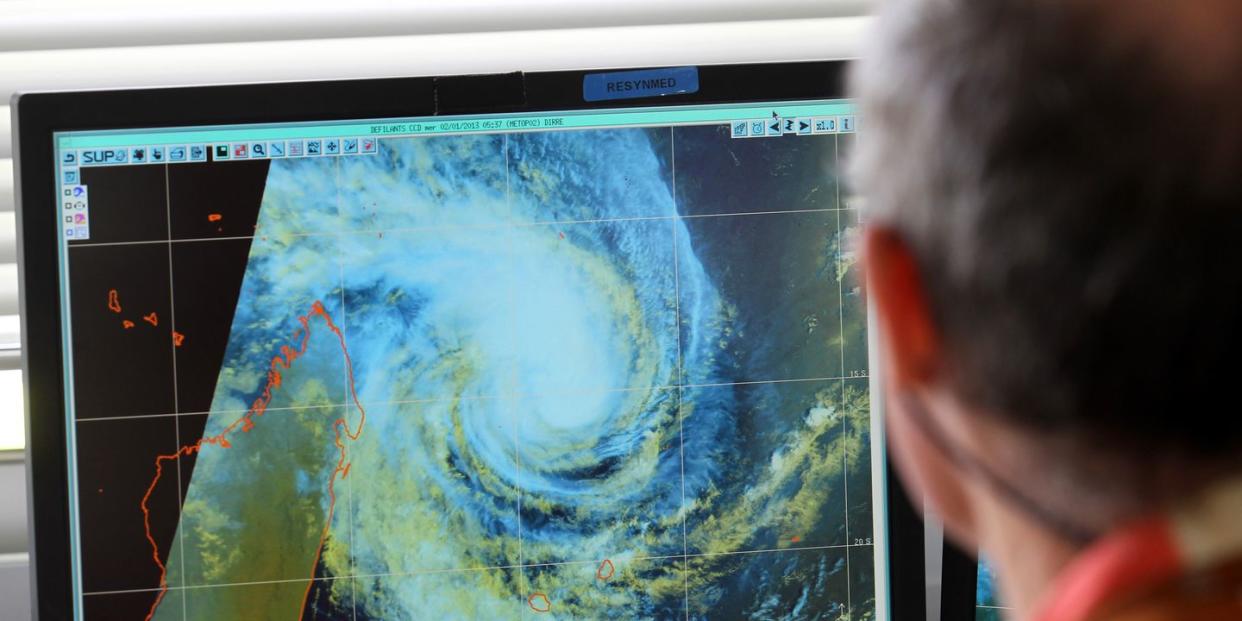The 5G Threat for Weather Satellites Is Only Growing

An industry conference has voted to allow 5G providers to trespass through weather satellite frequencies.
Scientists have been trying to avoid this outcome since at least April, but some seem optimistic about finding a way forward.
Weather data touches daily life in many ways, including in emergency preparation.
In April, Popular Mechanics reported that 5G network frequencies could interfere with weather satellites on a very similar frequency. Now, The Verge reports that the mobile industry has struck a blow against the concerns of the National Oceanic and Atmospheric Administration and other weather data organizations.
“Weather forecasters say there’s not much they can do to protect themselves if 5G winds up being a noisy neighbor since the water vapor molecules they track naturally emit a slight radio signal right around 24GHz,” the Verge reports. Delegates at the industry’s World Radiocommunication Conference voted for much looser restrictions than weather organizations have suggested and even begged for.
The tiny beeps from water vapor could be swamped by 5G signals in the same frequency, like how one radio station overpowers another as you drive away. The water vapor will always be a very weak station, and the fact that it emits any amount of radio signal has made much of weather data collection possible. Scientists and officials asked for a certain amount of guaranteed space around the water vapor frequency but had it greatly reduced by the industry group.
It’s been a tough few years for both the NOAA and National Weather Service (NWS), beginning when President Trump nominated the CEO of private competitor AccuWeather to lead the NWS in 2017. Although companies like AccuWeather rely on the massive pipeline of public NWS data, they’ve worked hard to hobble the NWS from offering that data to the general public at all.
Governing bodies have promised to monitor the burgeoning 5G industry to see just how badly these signals interfere with weather satellites, but the precedent has been set for more accommodation than principle. Without reliable weather data, not just the private weather industry but many others will suffer.
Weather expert Dr. Marshall Shepherd wrote at Forbes last year "weather information is critical to virtually every facet of life: the economy, energy production, aviation, agriculture, national security, public health, event planning, construction, and overall protection of life or property.” But The Verge reports that 5G has been portrayed as an international race where the U.S. must keep up or be surpassed by China and others, and where concerns are irrelevant.
The FCC made its own recommendation for limitations on the 5G frequency, but this proposal allows 3,000 times more noise on the frequency than what the World Meteorological Organization recommended. It was still 150 times more noisy than a European proposal that offered a compromise. The new World Radiocommunication Conference ruling is at least a little stricter than that.
There may be complex arrangements that will let both services operate at ideal consumer efficacy. Scientists could switch networks on and off in order for satellites to take measurements, or take advantage of times of less demand to do bigger scheduled observations. Radio frequency in orbit is already really complicated, and satellites stick to prescribed bands to avoid crossing with weather or military or other government uses.
As more satellites go up, assigning frequencies gets even more complicated, but it also means experts are studying the situation and trying to find new solutions.
Source: The Verge
You Might Also Like

